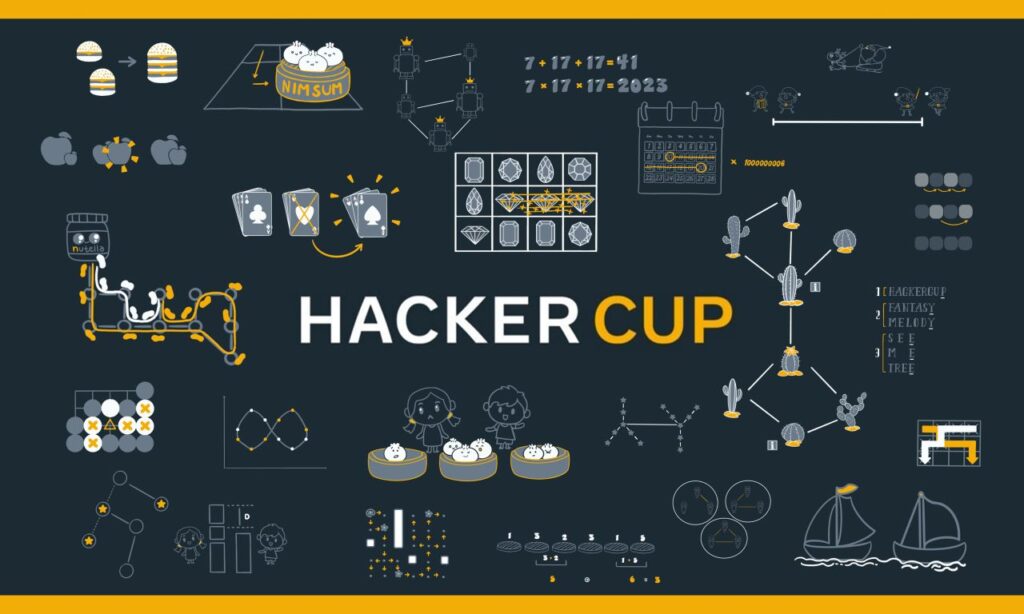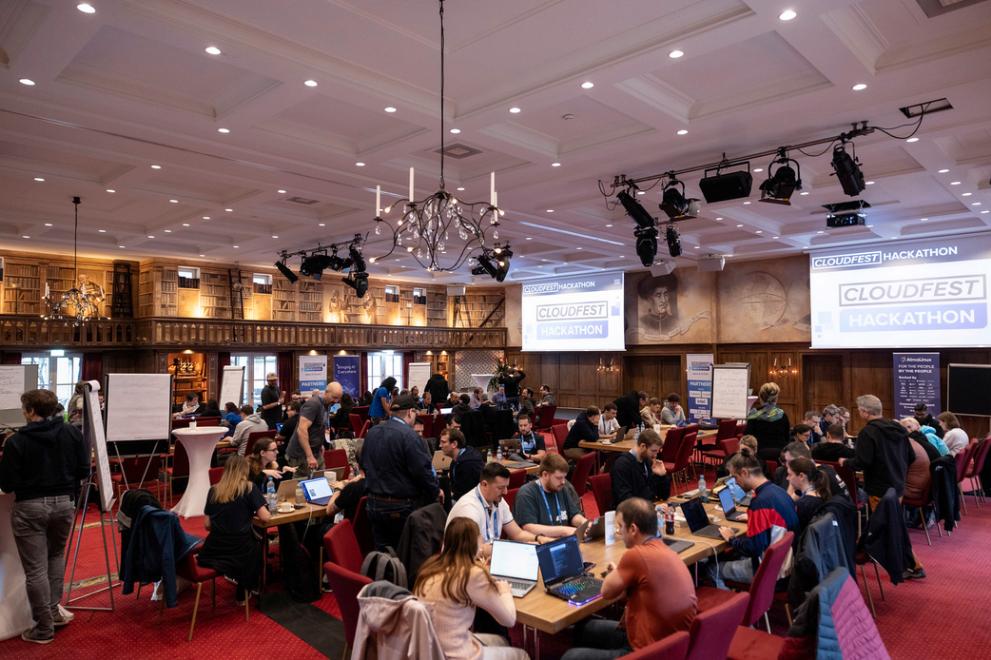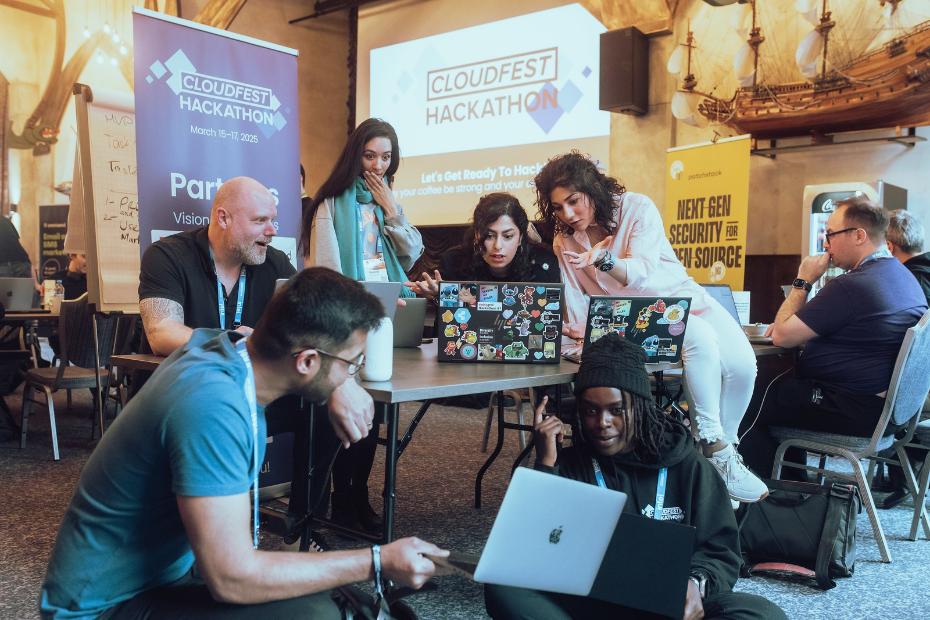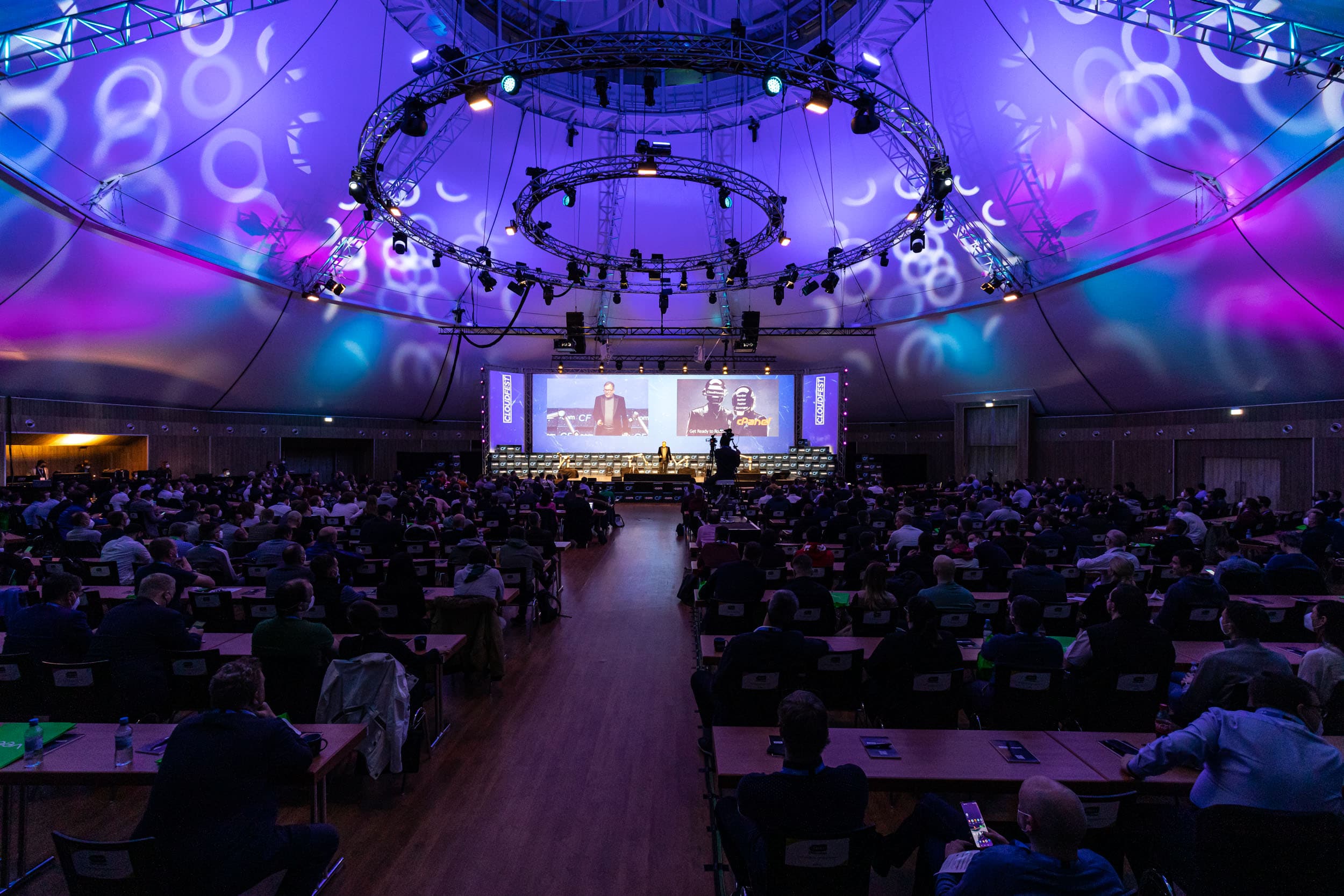In 2023, Google Code Jam and Hash Code, long considered the world’s biggest coding competition, shut down after years of excellence. Topcoder Open followed suit, ending its own storied run. The timing—coinciding with the rise of ChatGPT—sparked widespread debate about AI’s role in these closures.
But here’s what’s actually happening: While ChatGPT can generate basic code at impressive speeds, it’s reshaping rather than replacing the developer’s role. Today’s developers are becoming technical directors, using AI tools to handle routine (and let’s be honest, often boring) tasks while focusing their expertise on system architecture, security protocols, and the 10% of code that actually matters the most.
This evolution is reflected in today’s programming competitions. AI integration has become a common theme, alongside cloud computing and cybersecurity challenges. These areas are your signals pointing toward lucrative career paths in tech.
And as our own CloudFest Hackathon 2025 edition ended in style, with some wonderful projects developed across the event, we present you a list of coding contests and hackathons that might trigger you to participate. These events we’re about to explore do more than pad your resume. They offer you a chance to learn by doing as you solve real-world problems.
ICPC World Finals

The International Collegiate Programming Contest (ICPC) is widely regarded as the pinnacle of competitive programming.
With a history dating back to 1970 at Texas A&M, the ICPC has grown into a global phenomenon.
The upcoming 49th ICPC World Finals will be held in Baku, Azerbaijan, from August 31 to September 5, 2025; hosted by ADA University. Teams of three students from over 3,400 universities will converge to tackle a series of intricate algorithmic puzzles under intense time pressure.
Regional contests serve as the gateway to the World Finals. These coding contests are divided into eight geographic zones: Africa and the Arab regions, Asia East, Asia West, Asia Pacific, Europe, Latin America, North America, and Northern Eurasia.
Each zone crowns a champion through a Championship Contest, and these champions are recognized at the World Finals Opening Ceremony as the top teams of their regions. If you want to find out if you have what it takes, keep an eye on the upcoming regionals for date announcements.
ICPC is not just about raw algorithmic power—it’s a test of teamwork, endurance, and the ability to perform under pressure. Every problem is a real-world challenge wrapped in a competitive puzzle, and only the cream of the crop makes it to the finals. If you love grinding through algorithms and thrive on mental endurance, the ICPC is the ultimate proving ground.
International Olympiad in Informatics (IOI)
While ICPC owns the university space, the International Olympiad in Informatics has become the defining event for high school programming talent. The format is ruthlessly simple: three problems, two days, zero room for error.
But here’s what makes IOI so fascinating: it’s where countries like China and Russia consistently demonstrate their early investment in tech education. Their winners often emerge as industry innovators years later. Each nation sends up to four students, but getting there means outperforming thousands of peers in national qualifiers.
For young coders looking to make their mark, IOI has become the first crucial step on the path to tech leadership and industry legend. Make sure you study previous tasks on the event’s task archive.
Meta HackerCup

Formerly known as Facebook Hacker Cup, Meta HackerCup is a global coding contest that pits nearly 30,000 participants against each other for a top prize of $20,000.
In the early rounds, you have plenty of time to solve problems. But as the competition heats up, you download test cases and have just six minutes to submit your solution. If you like racing against the clock and thrive under pressure, Meta HackerCup is calling you.
The qualification round is deliberately accessible—solve just one problem, even the easiest, and you’re through. Round One raises the bar: tackle either one complex problem or two simpler ones. But from Round Two onward, the competition takes a more challenging turn. Now every minute counts, and only the elite few advance.
Want to compete? Start with past HackerCup problems: they’re your best preview of what’s coming. The solutions, complete with explanations, live under the resource tab. For structured practice, Hackerrank offers a clean interface and topic-focused problems, from dynamic programming to graph theory.
Notable Other Contests
CODE100 at WeAreDevelopers World Congress: A live coding spectacle where developers face off in “Extreme Pair Programming” and “Flash Quiz” rounds.
Microsoft Imagine Cup: This student startup competition (semifinals: Feb–March 2025) rewards innovation, not just coding prowess. Finalists receive mentorship through Microsoft’s startup hub and compete for $100,000 and a session with CEO Satya Nadella.
CodeChef offers a wide range of online coding competitions tailored to different skill levels, making it a favorite among competitive programmers:
- Long Challenge: This contest runs for 10 days, starting on the first Friday of each month. It features a mix of easy to medium problems, making it suitable for beginners and intermediate coders alike. The extended duration allows you ample time to think through problems and develop solutions.
- Cook-Off: Held on the second Sunday of each month, this coding contest lasts 2.5 hours. It focuses on algorithmic and data structure problems, testing your ability to solve problems quickly under time constraints.
- Lunchtime: Occurring on the last Saturday of each month, Lunchtime is primarily aimed at school students but is open to all. It includes a variety of problems that help improve problem-solving skills.
This is Not a Test: The World of Hackathons
While a coding competition tests your ability against other participants, a coding hackathon is a collaborative event where teams build real-world projects over an extended period.
European Big Data Hackathon
Eurostat’s fifth edition tasks teams with merging Earth observation data and EU statistics to solve policy challenges, like tracking illegal fishing or predicting crop yields. Partners include the European Space Agency and CloudFerro, using tools like the Copernicus Data Space Ecosystem.
HackHPI
Focused on health tech, this free event offers workshops, networking, and caffeine-fueled coding sprints. Build tools for patient data management or mental health support, and compete for “best meme” prizes. Bring a sleeping bag: it’s an all-nighter.
IDRIS Open Hackathon
With mentors from NVIDIA and OpenACC, teams optimize HPC/AI codes for GPUs. Projects range from climate modeling to LLM training. Submit a “mini-app” snippet (not your entire codebase) when registering.
CloudFest Hackathon

Whether you’re there to network, learn new skills, or see your ideas come to life, the annual CloudFest Hackathon is a fantastic opportunity to push the limits of what you can do in the cloud computing space. Under expert mentorship, teams of hackers, designers, and innovators solve real-world open-source problems, deploying their solutions during the main CloudFest event.
How to Prepare for Programming Events
The best coders aren’t born, they’re built. Platforms offering structured practice, community support, and real-world challenges are essential for staying competitive. These resources don’t just teach syntax; they train you to think like a problem-solver.
GeeksforGeeks
A hub for coding practice, with tasks tagged by companies like Amazon and Meta. Filter by difficulty (easy to expert) and topics like Python or Java collections.
CodeWars
Solve “katas” (coding exercises) crafted by 3.5 million users. Co-founder Jake Hoffner calls it a “mind sport” and a gateway to Andela’s hiring network: “Your achievements here launch your journey with us.”
LeetCode and HackerRank
Mock Meta Hacker Cup problems on LeetCode, or track progress via HackerRank’s badges. Both platforms offer forums where coders dissect solutions like conspiracy theories.
GitHub Archives
Download past problems from Code Jam, Hash Code, and Kick Start to study patterns and strategies.
What Kind of Coder Will You Become?
Computer science competitions and hackathons aren’t just about leaderboards: they’re incubators for creativity, collaboration, and career growth. Whether you’re a high school prodigy at IOI, a GPU wizard at IDRIS, or a policy-minded coder at the EU Code Week Hackathon, these events offer chances to learn, network, and make your mark.
So, what’s your next move? Dive into algorithmic puzzles, build tools for global challenges, or grind katas on CodeWars? Your mind and your keyboard are all it takes.



